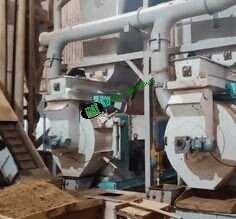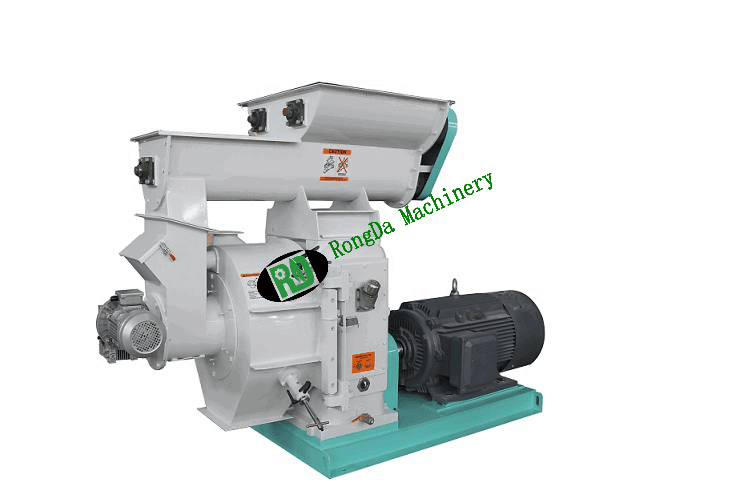Welcome to Rongda Machinery Co., Ltd
Toggle Navigation
As global concerns regarding environmental degradation and the depletion of finite resources continue to rise, the need for sustainable energy solutions becomes increasingly critical. Among the most promising alternatives, the production of biomass pellets emerges as an efficient, renewable, and environmentally friendly energy source. For those aiming to diminish their carbon footprint and boost energy efficiency, investing in biomass pellet production equipment is a strategic step forward.

Biomass pellet production involves converting organic materials — such as wood chips, sawdust, and agricultural residues — into dense, uniform pellets usable as fuel. This process not only offers a sustainable alternative to fossil fuels but also enhances energy efficiency. The production entails grinding raw biomass into fine particles, compressing them under substantial pressure, and extruding them into cylindrical forms. The outcome is a renewable energy source suitable for heating, power generation, and industrial applications.
Versatile and low in carbon emissions, biomass pellets serve various applications ranging from residential heating systems to large-scale industrial energy generation. As the world gravitates towards greener practices, integrating biomass pellet production becomes pivotal in the renewable energy landscape.
Investing in biomass pellet machinery offers numerous advantages, both for individuals and businesses:
Renewable Resource UtilizationBiomass pellets are derived from organic materials, making them a renewable energy source. Unlike fossil fuels, which are finite and require eons to replenish, biomass continually regenerates through natural cycles such as plant growth. Investing in pellet production equipment helps reduce reliance on non-renewable resources and cuts down greenhouse gas emissions.
Carbon NeutralityThe combustion of biomass pellets releases carbon dioxide equivalent to the amount absorbed during the growth of the organic material, achieving carbon neutrality. This characteristic renders biomass one of the most eco-friendly energy sources available.
Cost-Effective Energy SolutionBiomass pellets offer a cost-effective and stable energy solution amid fluctuating global energy prices. By utilizing a biomass pellet maker, you can produce fuel locally, reduce dependency on imported energy, and protect against market volatility. This boosts energy security while fostering a sustainable energy future.
Waste Conversion and Circular EconomyOne of the most compelling aspects of biomass production is its potential to turn waste into valuable resources. Materials like agricultural residues, sawdust, and wood chips, which would otherwise fill landfills, can be converted into valuable biomass pellets. This not only reduces landfill waste but also supports a circular economy, minimizing disposal costs and creating an additional income stream.
Versatility and Long-Term SavingsBiomass pellets are an affordable choice for heating and power generation. When compared to traditional fuels like oil, coal, and natural gas, they are generally cheaper and offer more stable pricing over time. By producing your own pellets, you can reduce fuel costs significantly. Moreover, biomass pellet machines are engineered for efficiency, maximizing the energy output of produced pellets.
Reliability and Low MaintenanceHigh-quality biomass pellet machinery represents not just a tool for energy production but an enduring, low-maintenance asset. Modern machines are designed for optimal performance, featuring automated controls and straightforward maintenance procedures that minimize downtime. With appropriate care, these machines promise years of reliable service.

When purchasing biomass pellet equipment, it's vital to consider several key factors:
Production Capacity: Match the equipment’s output to your needs, whether for small-scale personal use or large-scale industrial production.
Material Compatibility: Ensure the machine can handle the specific biomass materials you plan to use, be it wood, agricultural waste, or other organic residues.
Energy Efficiency: Opt for machines that consume less power, offering savings on operating costs while minimizing environmental impact.
Ease of Maintenance: Select equipment that is easy to clean and repair, reducing long-term operational costs.
Budget and Support: Factor in the equipment's cost and evaluate warranties or service agreements from the manufacturer to ensure comprehensive support and value.
Choosing to invest in biomass pellet production equipment is a proactive move towards minimizing environmental impact, increasing energy self-sufficiency, and cultivating a sustainable energy source. With the right machinery, you can transform waste materials into high-quality biomass pellets, reduce dependence on fossil fuels, and contribute to a sustainable, eco-friendly future.